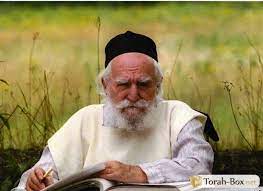
Rav Tzvi Pesach Frank, zt”l,
the posek of his generation, lived almost his entire adult life in
Yerushalayim, and passed away before I attended school and certainly before I
had ever visited or moved to Israel. So how could I have a story about him?
Rav Moshe Feinstein, zt”l, was the gadol hador in America, and although I had the zechus to meet him on numerous occasions, I did not have any
private conversations with him, nor did I observe any specific events that are
not known to those who have read the biographies about him. So, how could I
have a story about him?
I did have a close relationship
with many of Rav Feinstein’s talmidim, however, and through them, I have
a myriad of interesting stories and observations. One of these talmidim, Rav Efrayim Greenblatt, gave
me the inside scoop on a fascinating piece of history of Jerusalem that
includes these great figures.
* * *
Rav Tzvi Pesach Frank, who was considered by many very
prominent rabbanim, roshei
yeshiva, and poskim to have been the posek hador of
his generation, has several unique distinctions in world history. The primary
two batei din and rabbinic institutions in Israel for the last century
are the Chief Rabbinate and the Eidah
Hachareidis, and these two organizations have been politically
opposed to one another since their inception. Yet, Rav Tzvi Pesach Frank has
the unique distinction of being the only one in history who was simultaneously the
head of the beis din of the Eidah
Hachareidis and the Chief Rabbi of Yerushalayim, a position under the
auspises of the Chief Rabbinate of Israel. And this was not simply a temporary
arrangement. Rav Frank held the first position for over half a century and the
second one for the last 24 years of his life; in fact, he held both positions simultaneously
for well over two decades!
When Rav Frank passed on, the
Chief Rabbinate wanted someone of equal stature to fill his now-empty shoes. I,
along with many others, have heard that they first offered the position to Rav
Moshe Feinstein, who, at the time, had been living in New York for almost 25
years. I have heard many rumors about whether Rav Moshe was indeed asked to
become the official government-recognized Chief Rabbi of Yerushalayim. I was
inclined to assume that the stories were simply a myth of the type people like
to invent. And the more borders these stories cross and the more details that
get added, the less believable they become. As a result, I tend to relegate
these “facts” to the status of unverified rumors to avoid joining the ranks of
supposedly respected journalists who fail to confirm their scoops.
Enter Rav Efrayim Greenblatt. I was very fortunate to spend a
considerable time with Rav Efrayim Greenblatt, a prominent posek and
author of the many volumes of Shu’t Rivevos Efrayim. Rav Efrayim joined
his uncle, Rav Nota Greenblatt, spreading Torah and Yiddishkeit in Memphis for many decades. At the end of his days,
after he had been widowed and suffered a series of heart attacks, Rav Efrayim
retired to Yerushalayim, where he had been born. I am indeed fortunate that his
daughter and son-in-law live in my neighborhood, and Rav Efrayim was their
frequent Shabbos guest. I used the opportunity to ask him numerous halachic questions I had about Rav
Moshe’s positions on many issues, and to better understand Rav Moshe’s approach
to Yiddishkeit, learning Torah,
and paskening shaylos.
One day, while we were in the
midst of one of our usual conversations, it occurred to me that I could perhaps
verify through Rav Efrayim whether there was any truth to the rumor that Rav
Moshe had been offered the position of Chief Rabbi of Yerushalayim, that he had
consulted with his nephew Rav Michel Feinstein about the matter, and that he
subsequently chose to decline the position.
Rav Efrayim answered me that he is
one of only two people who have firsthand knowledge of this matter, the other
being Rav Michel Feinstein. Rav Efrayim was born and raised in Yerushalayim,
but had studied under Rav Moshe in Mesivta
Tiferes Yerushalayim, colloquially called MTJ, which is located in the
Lower East Side neighborhood of New York City. While Rav Efrayim was still
studying in the kollel of MTJ, he
was planning a trip to Eretz Yisrael
to visit his aging parents. Rav Moshe had asked him a very big, personal favor:
While in Eretz Yisrael, could
Rav Efrayim go to Bnei Braq to visit Rav Moshe’s nephew, Rav Michel Feinstein,
who was a son-in-law of the Brisker Rav, Rav Velvel Soloveichik. At one time in
his life, Rav Michel had been both a rosh yeshiva and a rosh
kollel in the United States, but by the time of Rav Tzvi Pesach Frank’s
passing, he had long established himself as a rosh yeshiva in Eretz
Yisrael.
The question that Rav Moshe
charged Rav Efrayim to ask on his behalf was this: If Rav Moshe would accept
the position, would he have serious input on important communal matters? Rav
Efrayim went to Rav Michel and asked him what Rav Moshe had asked. The answer
was, “Rav Moshe will have more influence if he remains in New York.”
And the rest is history, as the hackneyed
old expression goes. The position of Chief Rabbi of Yerushalayim was then
offered to a different, internationally recognized posek: Rav Shlomo
Zalman Auerbach. But the well-known details of that part of history, and the involvement
of the Chazon Ish in it, are a different story.






